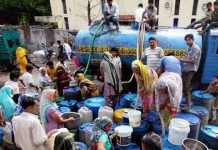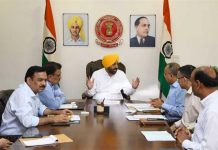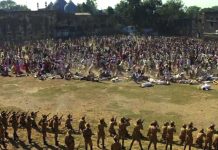 Ajit Sahi
Ajit Sahi
Editor-at-Large
Some readers and activists have faulted our coverage of the rape victims in Chhattisgarh whose testimonies the NHRC has denied. Their key points are: Naming the rape victims and their villages, and publishing their pictures (not pixellated enough in the opinion of some) has “severely compromised the victims’ attempts to cope with the assault” and “jeopardised their security”. It has also made it “that much more difficult” for these women to seek justice in the “highly polarised environment” of Chhattisgarh “amidst documented atrocities by the Salwa Judum”. Some letter writers say these rape victims are now “vulnerable to harassment and pressure to retract the testimonies”.
Veena, a mother of two little daughters, is a social activist from north India who settled in the tribal forest heartland of south Chhattisgarh 17 years ago. She has dedicated her life to working among the extremely poor and destitute tribal people. Veena is the vice-president of the Vanvasi Chetna Ashram, an NGO that is fighting a grim battle against an extremely violent security apparatus, to bring justice for the tribal people being brutalised by the State and the Salwa Judum. Veena has risked life and limb to champion the cause of these rape victims.
The rape testimonies
Veena, who works with the rape victims, says the Tehelka report does not jeopardise their security but will, in fact, make the Salwa Judum fearful
This is what she said to me after the publication of The Rape Testimonies in TEHELKA: “You have done a great service by publishing these rape victims’ stories in this format. These girls are my family. They have been our lives for years. I have run from pillar to post with them to get justice. Especially since they went to the NHRC and the NHRC rejected their testimonies, they have lived in the dread of the Salwa Judum. They have constantly faced pressure to retract their testimonies. It is important that we don’t hide the truth about them. The publication of this story does not compromise or jeopardise the rape victims’ security. It makes them safer, not more insecure. TEHELKA’s report ensures that the Salwa Judum will now have some fear. By hiding the truth about these women, we were emboldening the State and the Salwa Judum. The Salwa Judum, the police, the government have always known the identities of these women. And they were taking advantage of the fact that the outside world knew nothing of these unfortunate victims, because nobody was willing to write about them. TEHELKA has done absolutely the right thing by taking their story to the outside world. You should know that this story is just the tip of the iceberg. The men of the Salwa Judum have raped hundreds of women.”
Sudha Bharadwaj, who, too, is a woman, is a criminal lawyer at the High Court of Chhattisgarh based in Bilaspur city. She represents some of these rape victims in the case they have initiated in a judicial magistrate’s court in the south Chhattisgarh town of Konta. When I spoke to her on the phone before writing the story, Bharadwaj expressed some misgivings about my attempt to document The Rape Testimonies. However, after the publication of the story, she sent me this text message from her mobile phone: “Excellent and factual report! No hard feelings about my earlier reservations, I hope.”
Nandini Sundar and a few letter writers claim I gave an “undertaking” that the identities of the rape victims will not be revealed. This is a reference to a series of e-mails Sundar and I exchanged roughly three months ago. (Some letter writers claimed that Sundar led me to the victims, but withdrew that line from a reworked mail they sent me later.) I have never met Nandini Sundar. She did not lead me to the rape victims. I have traveled rather extensively inside Chhattisgarh since last January, and I found out about the rape victims through my sources. I travelled to one village to meet a victim who had deposed before the NHRC.
Upon hearing of my quest, Nandini Sundar wrote to me asking me not to reveal the identities of the women. I wrote back saying the choice rests with the rape victims, who, I humbly believe, do not need lawyers, journalists and activists to tell them how to run their lives. Yes, I did in the end write back to her saying we would not reveal the victims’ identities. Short of giving the women fake names, we have not revealed their identities: we scratched out their faces from the pictures and we abbreviated their given name.
TEHELKA has always practiced journalism of integrity, and to publish The Rape Testimonies in its current format was no easy decision for us. Our own unique experiences in the battlefield over the last nine years have convinced us that the best “protection” we can provide the underdog is to push their story into the public domain, because the fear of exposure of their criminality often best deters the evildoers, especially those who represent the State. It is this principle which has, over the years, protected TEHELKA itself as it broke story after story — exposing the truth behind the Gujarat killings of 2002 as well as the truth of the Sikh massacres of 1984 — that upset the establishment and hit out at vested interests.













